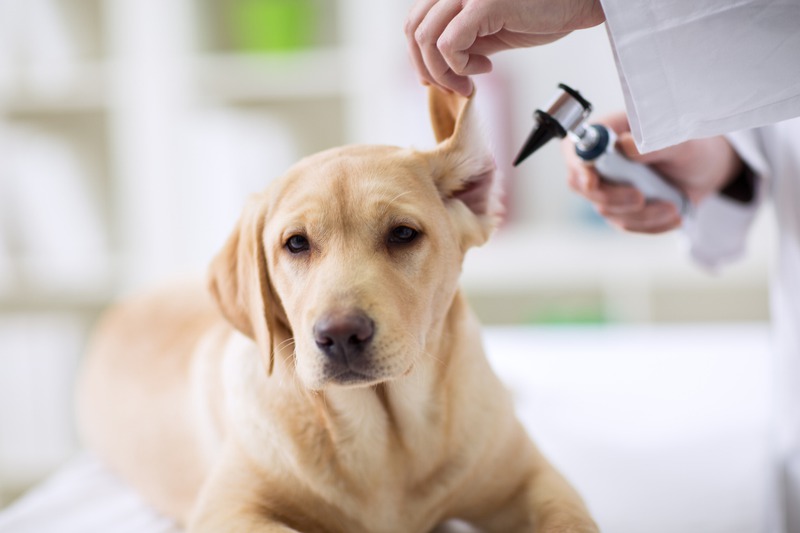Essential Pet Ear Care Tips for Preventing Infections and Discomfort

Proper ear care is vital for your pet’s health. Check your pet’s ears often for dirt, wax, or signs of infection, like redness, swelling, or a bad smell. For dogs, especially those with floppy ears and cats, gentle cleaning with a pet-safe ear cleaner is recommended. Use a soft cloth or cotton ball—never a cotton swab deep inside, as it can hurt their ears. If you notice anything unusual, like excess scratching or discharge, it’s best to consult a vet. Keeping your pet’s ears clean and dry prevents discomfort and health issues, ensuring a happier companion.
Understanding Ear Care for Pets
Regular ear checks are crucial for your pet’s well-being. Neglected ears can lead to infections, mites, and other problems, causing discomfort and health issues for your pet. You can spot and fix these concerns by routinely checking and cleaning their ears early on. This proactive care keeps your pet happy and healthy.
Signs of Ear Problems in Pets
Awareness of the common symptoms of ear problems is the first step in effective ear care. Look out for:
-
Redness or swelling inside the ear
-
Unpleasant odor
-
Discharge or excessive wax buildup
-
Scratching or pawing at the ears
-
Tilting head or loss of balance
Recognizing these signs can prompt timely treatment and prevent complications.
Basic Ear Cleaning
Proper ear cleaning for cats and dogs is essential to avoid infections and maintain ear health. Here is a step-by-step guide:
-
Gather Necessary Supplies: You’ll need a vet-approved ear cleaner, cotton balls, and gloves.
-
Position Your Pet Comfortably: Ensure your pet is calm and relaxed. You might need someone to help hold them.
-
Apply Ear Cleaner: Gently lift your pet’s ear flap and apply a few drops of the ear cleaner into the ear canal.
-
Massage the Base of the Ear: This helps distribute the cleaner and loosens any debris.
-
Wipe Away Debris: Gently wipe the ear’s interior with a cotton ball, removing any visible dirt or wax.
Frequency of Ear Cleaning for Preventive Care
How often you should clean your pet’s ears depends on several factors, including their breed and environment. In general:
-
Dogs with floppy ears or who swim frequently may need weekly cleaning.
-
Cats usually require less frequent cleaning, but being attentive to their needs is essential.
Choosing the Right Ear Cleaning Products
Selecting the right products is crucial for effective ear cleaning for cats and dogs. Look for:
-
Vet-approved ear-cleaning solutions
-
Products free from harsh chemicals
-
Items designed specifically for your pet’s species and specific needs
Consult with your veterinarian if you’re unsure about which product to use.
Avoiding Common Mistakes in Ear Care
Even with the best intentions, mistakes can happen. Here are some common errors and how to avoid them:
-
Over-Cleaning: Cleaning too frequently irritates the ears and strips away natural oils.
-
Using Wrong Products: Human ear cleaners or home remedies can be harmful, so always stick to vet-approved products.
-
Improper Technique: Being too rough or not thorough enough can cause problems. Always be gentle and ensure you’re reaching all parts of the ear.
When to Seek Veterinary Help
Sure signs indicate it’s time to consult a vet. These include:
-
Persistent redness or swelling
-
Continuous discharge or bleeding
-
Strong odor from the ear
-
Signs of pain when the ear is touched
During a veterinary ear examination, the vet will inspect the ear canal and may use a pet otoscope to look deeper. They may also take samples to determine if there’s an infection or other issue.
Ear Cleaning Techniques for Sensitive Pets
For some pets, ear cleaning can be particularly uncomfortable. Here are some tips to make the process easier:
-
Use Treats and Positive Reinforcement: Make the experience rewarding.
-
Go Slowly: Be patient and take breaks if needed.
-
Gentle Handling: Always be gentle to avoid causing stress or harm.
Preventive Measures Beyond Cleaning
Beyond regular cleaning, incorporate additional preventive measures to ensure your pet’s ear health:
-
Balanced Diet: A healthy diet can boost your pet’s immune system.
-
Regular Grooming: Keep the fur around the ears trimmed and clean.
-
Allergy Testing: Allergies can exacerbate ear problems. Consider cat allergy diagnosis as part of a comprehensive care plan.
For example, if you are in Boston, specialist clinics can provide services tailored to your pet’s specific needs, including specialized allergy testing.
Final Thoughts
Regular ear care is essential for keeping your pet healthy. Cleaning their ears helps prevent infections, which can cause pain. Making this a part of your regular pet care routine is essential. Doing so will help your pet avoid discomfort and be happier. Keeping your pet’s ears clean contributes to their overall health. Be gentle and use the right products for your pet’s ears. You can keep your furry friend feeling good with clean, healthy ears. Regular check-ups with a vet can also help maintain your pet’s ear health.


